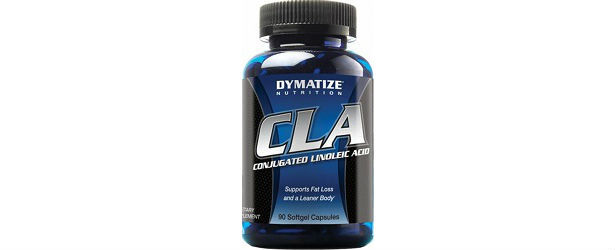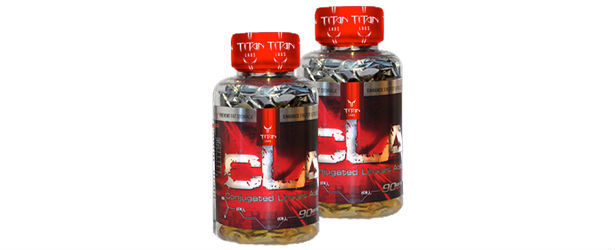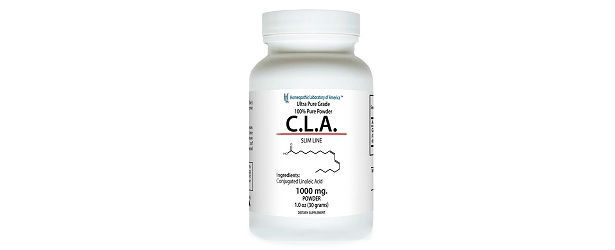
Side Effects of CLA Safflower Oil
Conjugated linoleic acid, also known as CLA, refers to a group of chemicals found in the fatty acid linoleic acid. Dairy products and beef are the major dietary sources. Conjugated linoleic acid is effective for fighting cancer, reducing “hardening of the arteries” (atherosclerosis), obesity, weight loss, bodybuilding, and limiting food allergy reactions.
 Conjugated linoleic acid is likely to be safe when taken by mouth in amounts found in foods and is POSSIBLY SAFE when taken by mouth in medicinal amounts (larger amounts than those found in food). It might cause side effects such as stomach upset, diarrhea, nausea, and fatigue.
Conjugated linoleic acid is likely to be safe when taken by mouth in amounts found in foods and is POSSIBLY SAFE when taken by mouth in medicinal amounts (larger amounts than those found in food). It might cause side effects such as stomach upset, diarrhea, nausea, and fatigue.
Safety is the most important issue to consider in your decision of taking a supplement. Currently, the available research leaves unanswered questions as to whether long-term use of CLA supplements by humans is safe. Safety and toxicity levels have not yet established and side effects have not been well documented. However, there are many studies out there that support its use for weight loss with no side effects.
Children: Conjugated linoleic acid is possibly safe for children when taken by mouth in medicinal amounts for up to 7 months. There is not enough evidence to know if long-term use is safe. However, children on the supplement also showed a dip in their blood levels of “good” HDL cholesterol and a lesser gain in bone mass over time. The findings suggest that while CLA might help slow body fat gain, its overall safety and effectiveness of children needs to be studied further
Pregnancy and breastfeeding: Conjugated linoleic acid is likely to be safe when taken by mouth in food amounts. But there is not enough evidence to know if conjugated linoleic acid is safe to use during pregnancy and breastfeeding. Stay on the safe side and avoid use.
Bleeding disorders. Conjugated linoleic acid might slow blood clotting. In theory, conjugated linoleic acid might increase the risk of bruising and bleeding in people with bleeding disorders.
 Diabetes: There are concerns that taking conjugated linoleic acid can worsen diabetes. Avoid use. Experts on CLA admit that not enough is known about the association of developing diabetes with CLA and whether it is dependent on the type of CLA taken, its dosage, health of an individual before taking CLA or how closely results from animal studies apply to humans. And, some studies report not observing this effect in their subjects.
Diabetes: There are concerns that taking conjugated linoleic acid can worsen diabetes. Avoid use. Experts on CLA admit that not enough is known about the association of developing diabetes with CLA and whether it is dependent on the type of CLA taken, its dosage, health of an individual before taking CLA or how closely results from animal studies apply to humans. And, some studies report not observing this effect in their subjects.
However, in recent research, researchers have reported that CLA may indeed be involved in insulin regulation. And therefore, concerns of a risk of developing diabetes from taking a conjugated linoleic acid supplement may have some merit and should be avoided until more is known.
Metabolic syndrome: There are concerns that taking conjugated linoleic acid might increase the risk of getting diabetes if you have metabolic syndrome.
Surgery: Conjugated linoleic acid (CLA) might cause extra bleeding during and after surgery. Stop using it at least 2 weeks before a scheduled surgery.
Some people report feeling nauseous after taking CLA and more rarely gastrointestinal upset or loose stools. These side effects are typically reduced when the product is taken with protein (e.g. milk) and tend to lessen roughly 2 weeks after commencing CLA supplementation. Side effects are very rare.
TOP 5
CLAProducts |
|||||
| CLA Premium | Nature's Bounty CLA | Natrol Tonalin CLA | Potent Organics CLA | AST Sports Science CLA-1000 | |
|---|---|---|---|---|---|
| 1 | 2 | 3 | 4 | 5 | |
| Price (1 bottle) Price (6 bottles)best value |
$48.00 $138.00 |
$21.99 $131.94 |
$19.29 $115.74 |
$24.73 $148.38 |
$23.99 $143.94 |
| Overall Rating | 99.50% | 83.5% | 79.2% | 69.0% | 62.1% |
| Effectiveness |





|





|





|





|





|
| Speed of Results | Extremely Fast | Good | Average | Slow | Slow |
| Quality of Ingredients | Premium | Good | Good | Average | Unknown |
| Customer Satisfaction Evaluation | 99.40% | 81.5% | 76.7% | 66.9% | 60.0% |
| Safety Evaluation | Safe for Use | Safe for Use | Safe for Use | Safe for Use | Safe for Use |
| Customer Service Rating |





|





|





|





|





|
| Reorder Rate | Highest | Good | Average | Average | Average |
| Return Policy | Risk Free | NO | Risk Free | Risk Free | NO |
| Success Rate | 99.40% | 80.5% | 74.5% | 66.0% | 59.5% |

 Subscribe Now
Subscribe Now










